Groundbreaking research into one of the most aggressive forms of cancer is being spearheaded in Hull, all thanks to one of the city’s most ardent supporters.
In April 2018, Dr Assem Allam donated £402,000 to a local research team seeking to improve the diagnosis of pancreatic cancer and potentially prevent some patients from undergoing unnecessary or debilitating surgery.
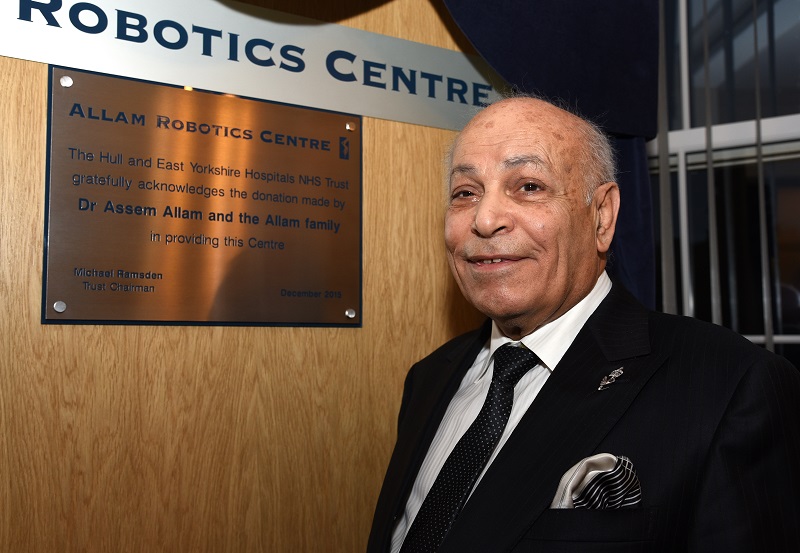
Dr Assem Allam provided funding to support the study into pancreatic cancer
The research team, which includes clinical, academic and research staff from Hull University Teaching Hospitals NHS Trust, Hull York Medical School and the University of Hull, devised a project, which stands unrivalled globally in both scope and ambition.
Part one of the TEM-PAC* research project has recently produced its first set of exciting results, which were presented for the first time at the prestigious ASCO-GI meeting in San Francisco last month. The findings have been so promising, in fact, that the team has received Cancer Research UK’s Early Detection and Diagnosis Primer Award, a further £98,500 research grant to support phase two and ensure vital research into this field continues in the years ahead.
Professor Anthony Maraveyas, Honorary Consultant in Oncology at Hull University Teaching Hospitals NHS Trust and Professor in Cancer Medicine at Hull York Medical School, University of Hull, has been leading the research team as its chief investigator. He explains just how significant the work is for patients affected by pancreatic cancers, cysts and lesions across the world:
“Pancreatic cancer is one of the rarer forms of cancer, with around 15 people per 100,000 being affected, but has one of the highest mortality rates; only five to eight per cent of those with this type of cancer survive beyond five years.
“Unlike the more common types of cancer such as breast, prostate or colorectal, pancreatic cancer has not generally been prioritised for funding or research, nationally or internationally, due to the relatively low number of people affected. We’re proud to be leading the change right here in Hull by bringing together experts from the Trust, the Medical School and the University.

Professor Anthony Maraveyas
“Dr Allam was a very generous man. He was well known for the support he showed and the financial backing he provided to both our hospitals and our academic institutions, so we were thrilled when, after speaking with our surgeons, he offered to fund some of the research which has been so desperately needed in this field.”
The team’s research project has focused on the investigation of pancreatic lesions called ‘cysts’, in particular being able to spot changes in cells which would support a more accurate diagnosis of cancer and enable surgeons to operate accordingly.
The most commonly used diagnosis methods are still somewhat crude, making it difficult for a clinician to determine the exact nature of a lesion or cyst and, crucially, whether it is cancerous or likely to turn that way. As a result, many patients undergo major surgery on larger cysts, only for a surgeon to find the lesion was not cancerous, yet the patient can then be left with long term effects such as significant pain or difficulty absorbing food for the rest of their life.
The team has already recruited 168 patients to the study, with an overall target of 180 people across the lifetime of the project.
“Our aim is to be able to identify changes in cells which will give a more accurate picture of what’s happening in a minimally invasive way,” Professor Maraveyas continues.
“The team uses conventional radiology techniques, including endoscopic ultrasound (EUS), to look at cysts and take small samples of fluid to test for biochemical changes, known as tumour ‘markers’. The presence of the markers could help to detect cancer early, and conversely, their absence could help prevent unwanted surgery.”
The study also incorporates the use of platform technologies, a form of cell research which is being championed by the University of Hull and which is very much seen as the future of cancer diagnostics worldwide. Using these platform technologies, the ambition is to obtain cyst fluid ‘signatures’ that will provide an accurate diagnosis of the type of cyst the surgeon is dealing with. In turn, this will enable treatment to be tailored specifically to each patient and is likely to reduce the number of patients undergoing avoidable surgery.
The innovative nature of the TEM-PAC study has attracted support from the National Institute for Health and Research, which has placed two academic clinical fellows (ACF) in the oncology department at Castle Hill Hospital, and a clinical lecturer post will also start in September 2023. This is the first time the oncology department has ever hosted such roles.
The second phase of the project will see the team recruit more participants and team up with other cancer research units across the UK on the next stage of research.
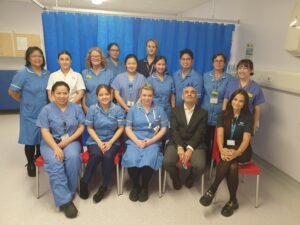
The Endoscopy Team at Castle Hill Hospital are playing a crucial part in the research
Phase two is being progressed thanks to a further generous donation of £250,000 made by Dr Allam just before he passed away in December 2022, supplemented by funding from the University of Hull and charitable funding from the Hospitals Trust. Total funding amounting to £550,000 will, over the next three years, support the development of upcoming laboratory researchers studying the transformation of pancreatic cancer cells from normal to malignant, and some of the other exciting biological mechanisms to emerge through the TEM-PAC project.
The appropriately named Allam Clinical Fellowship has been set up as a recurring three-year clinical post working jointly across the University of Hull and Hull Hospitals to support pancreatic cancer research, through which each clinical fellow will study for their PhD. It is envisaged that this fellowship will continue in the years ahead in order to promote Hull as a specialist centre for oncology research and to aid recruitment and retention within local hospitals. The fellowship further builds on the long-term partnership between the Trust, the Medical School and the University, all contributors to this fellowship, to lead research on cancer and other health issues pertinent to the health of the region’s population.
Speaking about his support for the project last year, Dr Allam commented:
“Having seen the impressive progress made by the dedicated team of clinical and scientific staff over the last four years, one could not fail to be impressed by their commitment and dedication to this research related to pancreatic cancer. In addition to increasing our level of understanding of the disease, it is in line with my desire for the Hull University Teaching Hospitals and University of Hull to attract and retain high calibre clinical and academic staff.”
Professor Maraveyas adds:
“We are in the process of conducting a world-leading study, the likes of which we could only have dreamt of without the support of Dr Allam. We’re incredibly grateful to him for giving us a platform through which to launch this research, to generate broader interest in and support for the work we’re doing, to retain some of our best researchers, and to attract collaborators across the country.
“The outcomes and potential benefits of this work for patients, not just in the UK but across the globe, could literally be life changing.”
TEM-PAC = Study of Tumour Regulatory Molecules as Markers of Malignancy in Pancreatic Cystic Lesions.
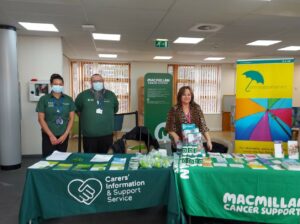

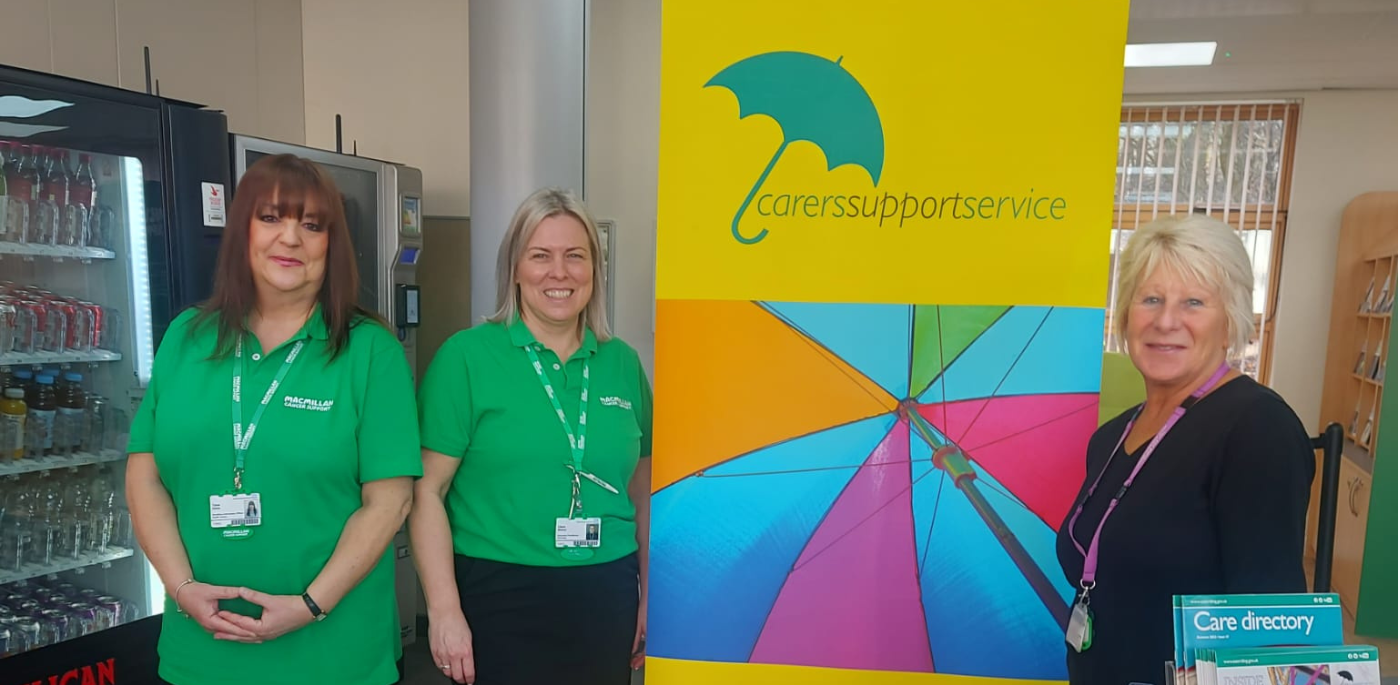

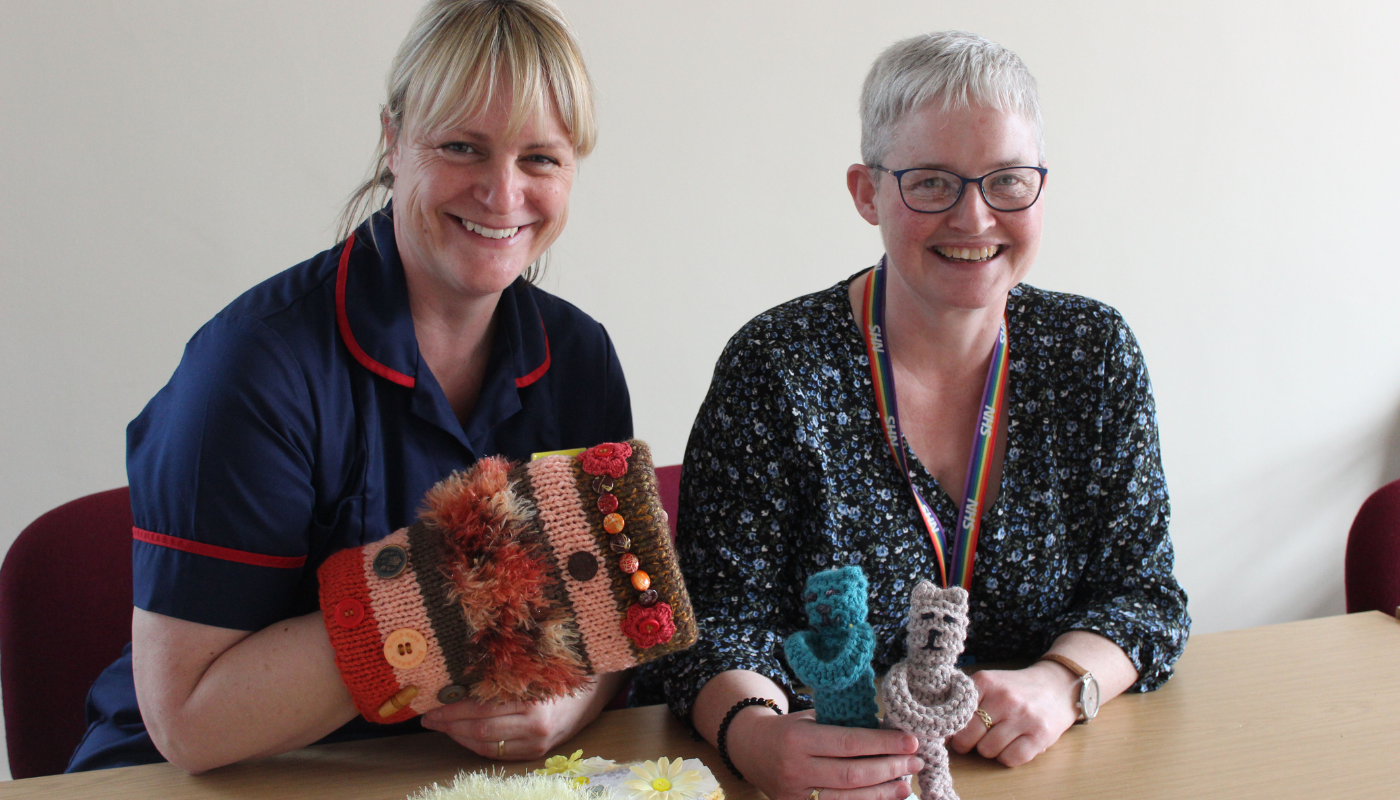
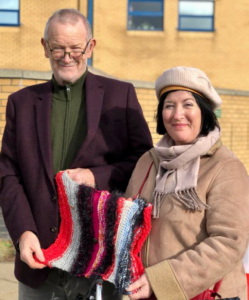
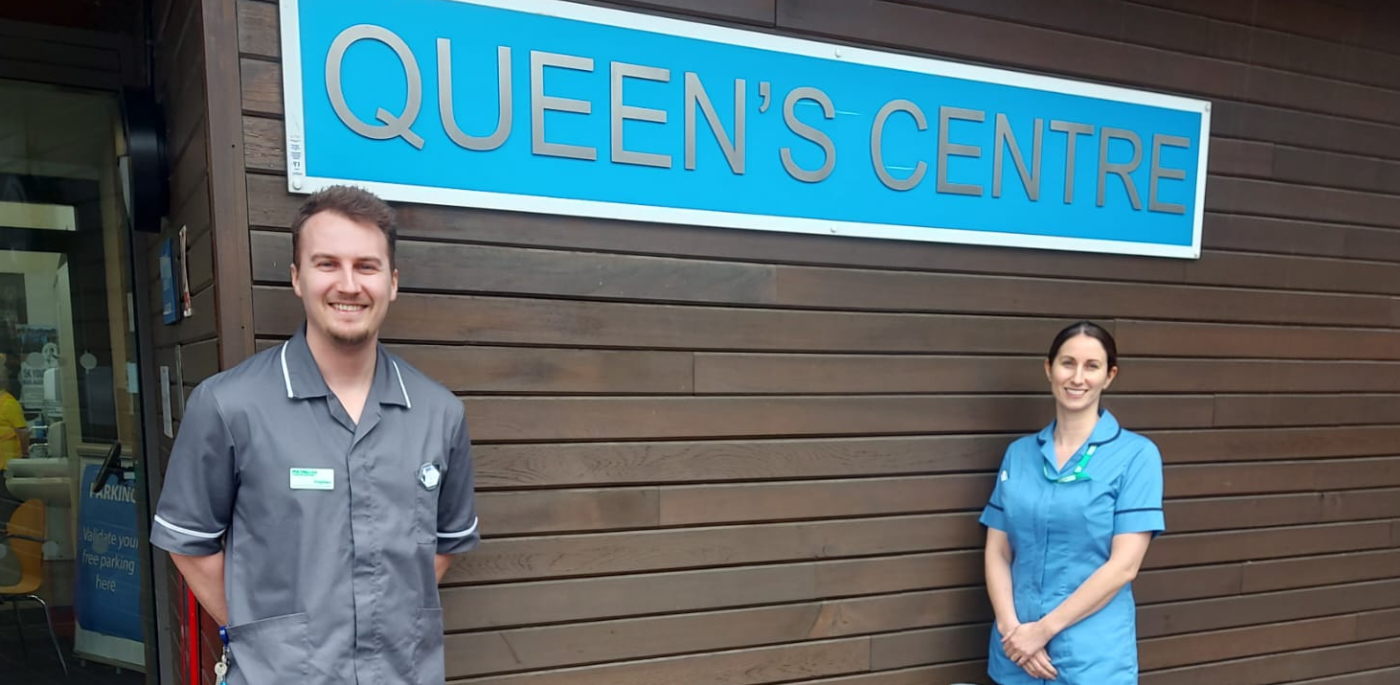
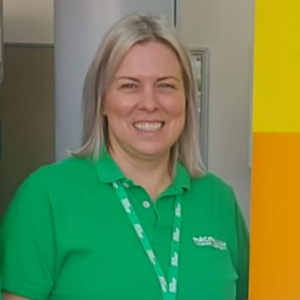
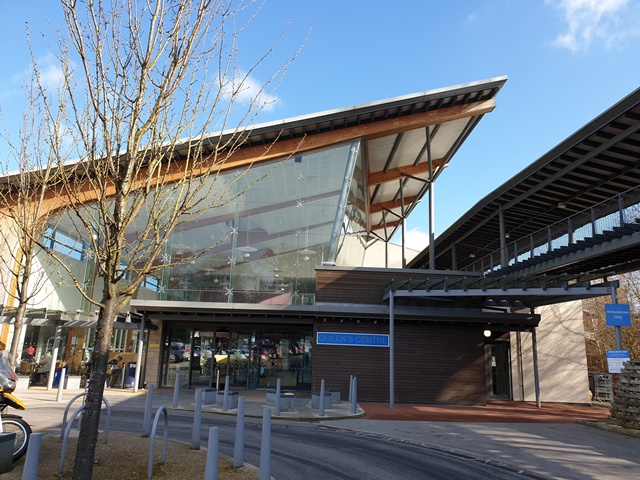
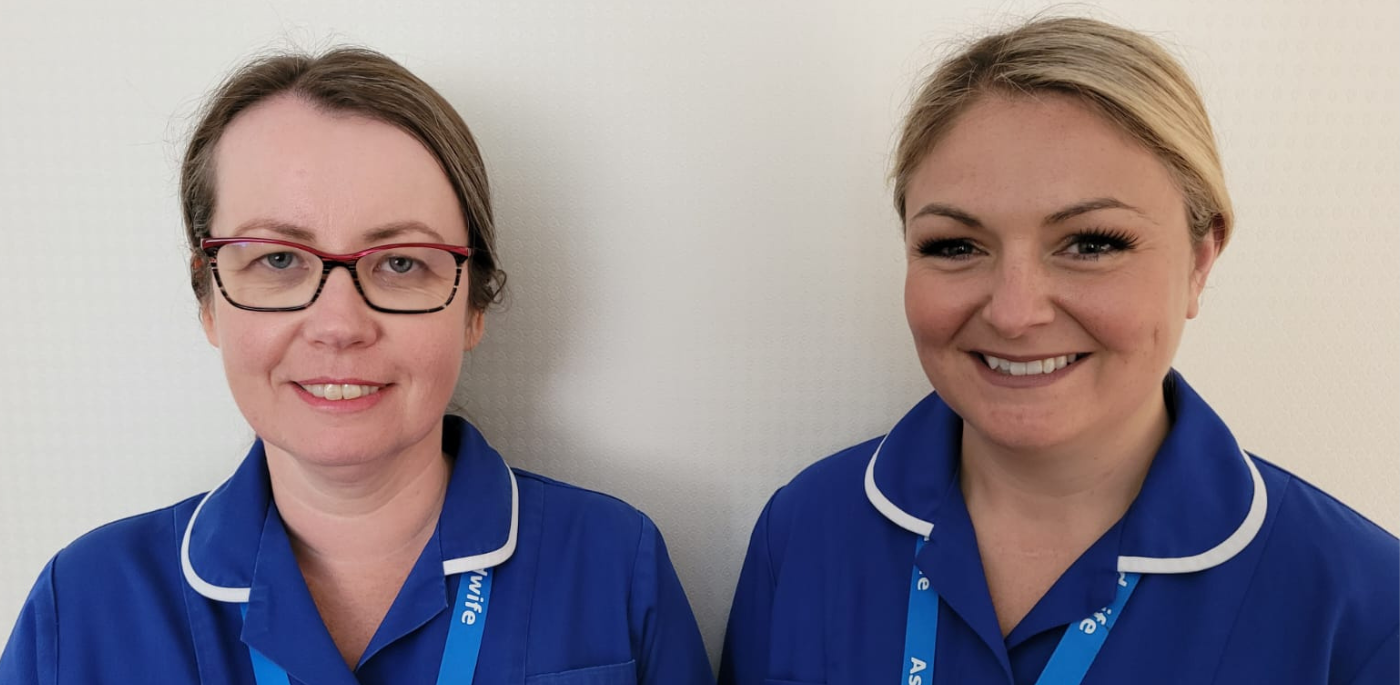
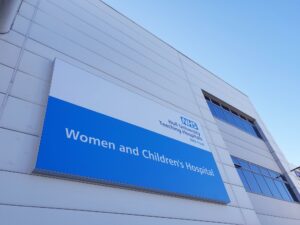
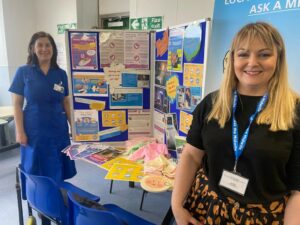
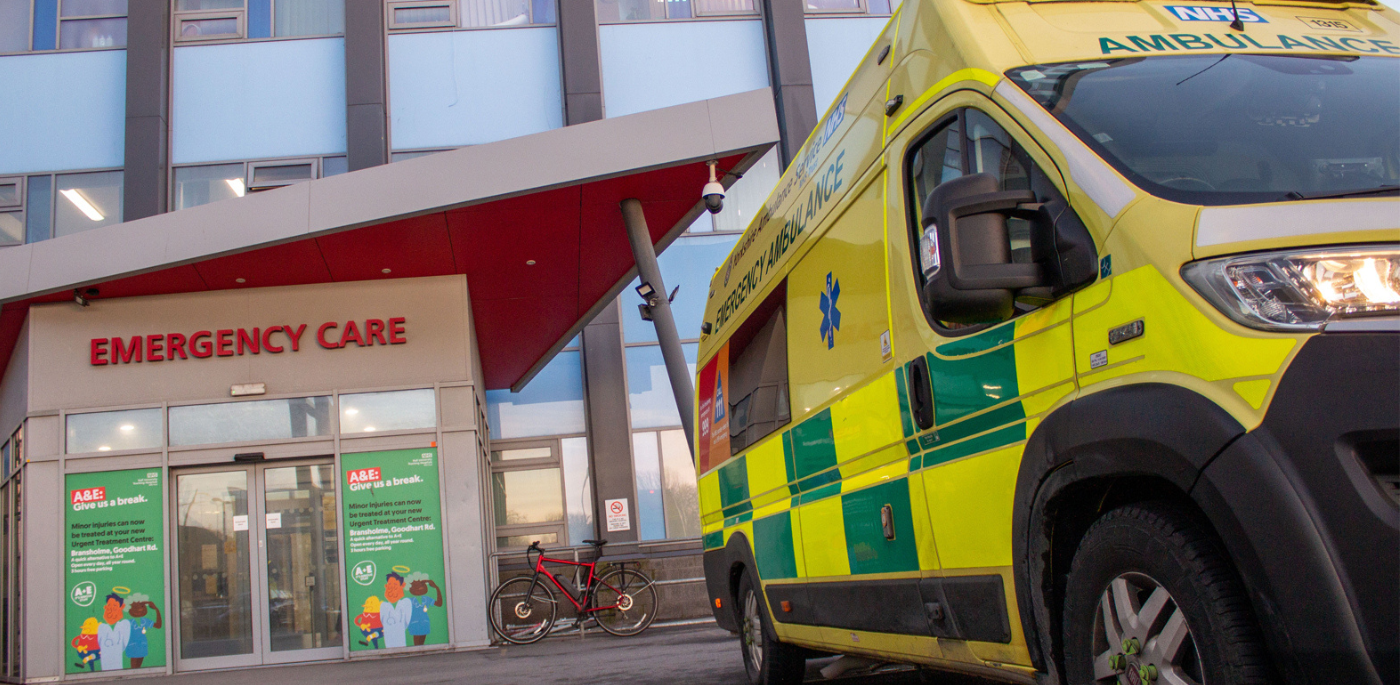
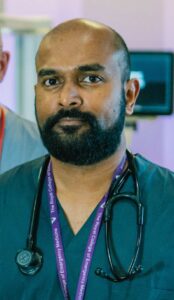
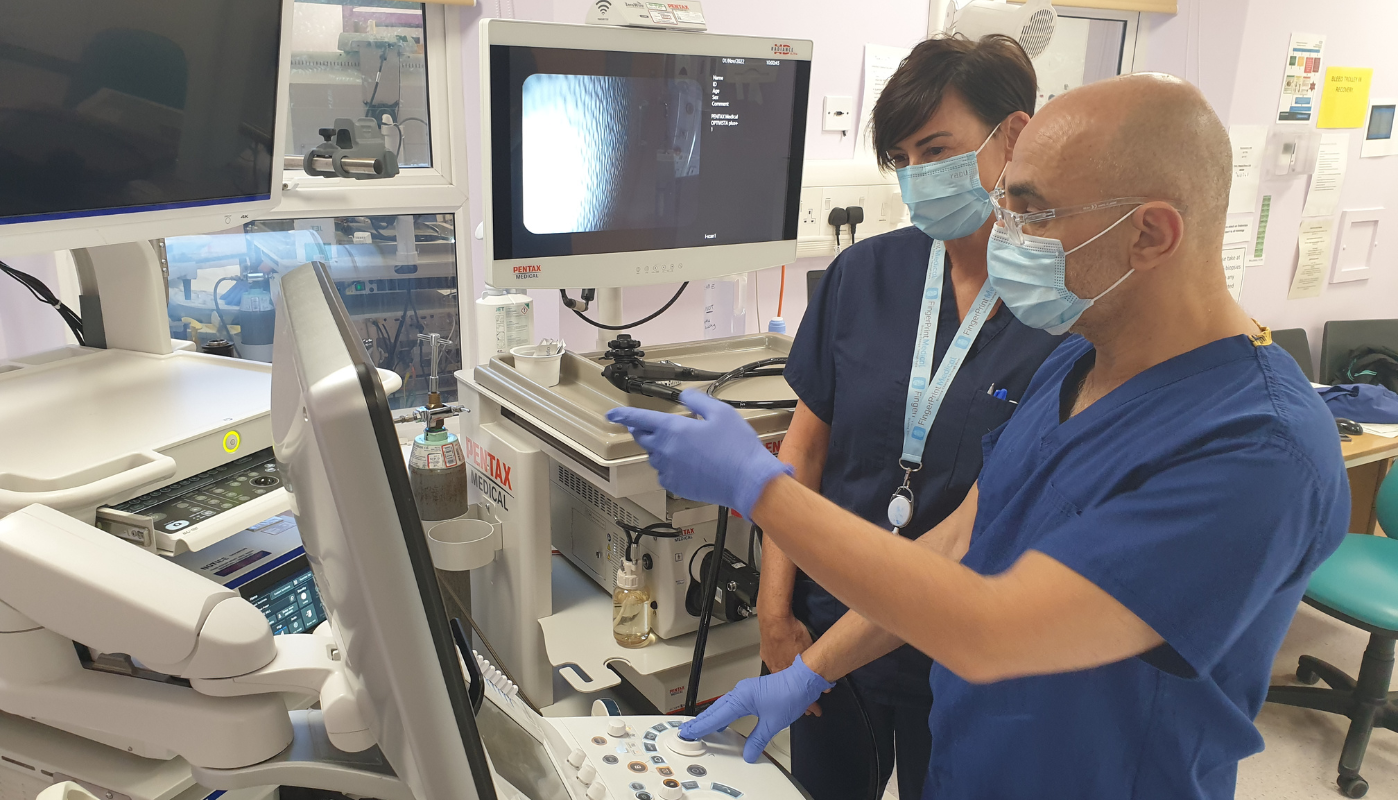




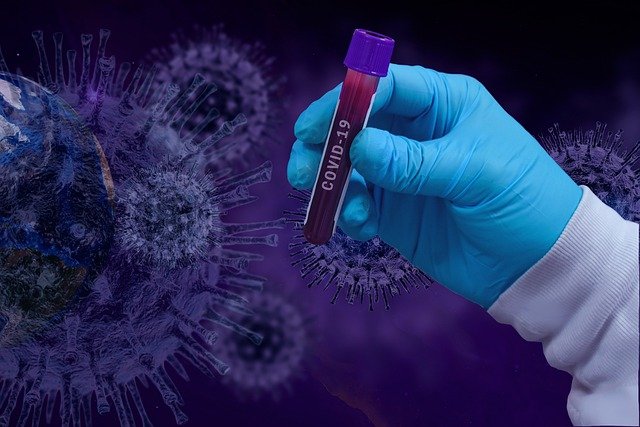

 Sarah Sharp set up the groups with Hannah Hoff from the Special Care Baby Unit after speaking to parents and carers as part of her work with the NICU outreach team.
Sarah Sharp set up the groups with Hannah Hoff from the Special Care Baby Unit after speaking to parents and carers as part of her work with the NICU outreach team.